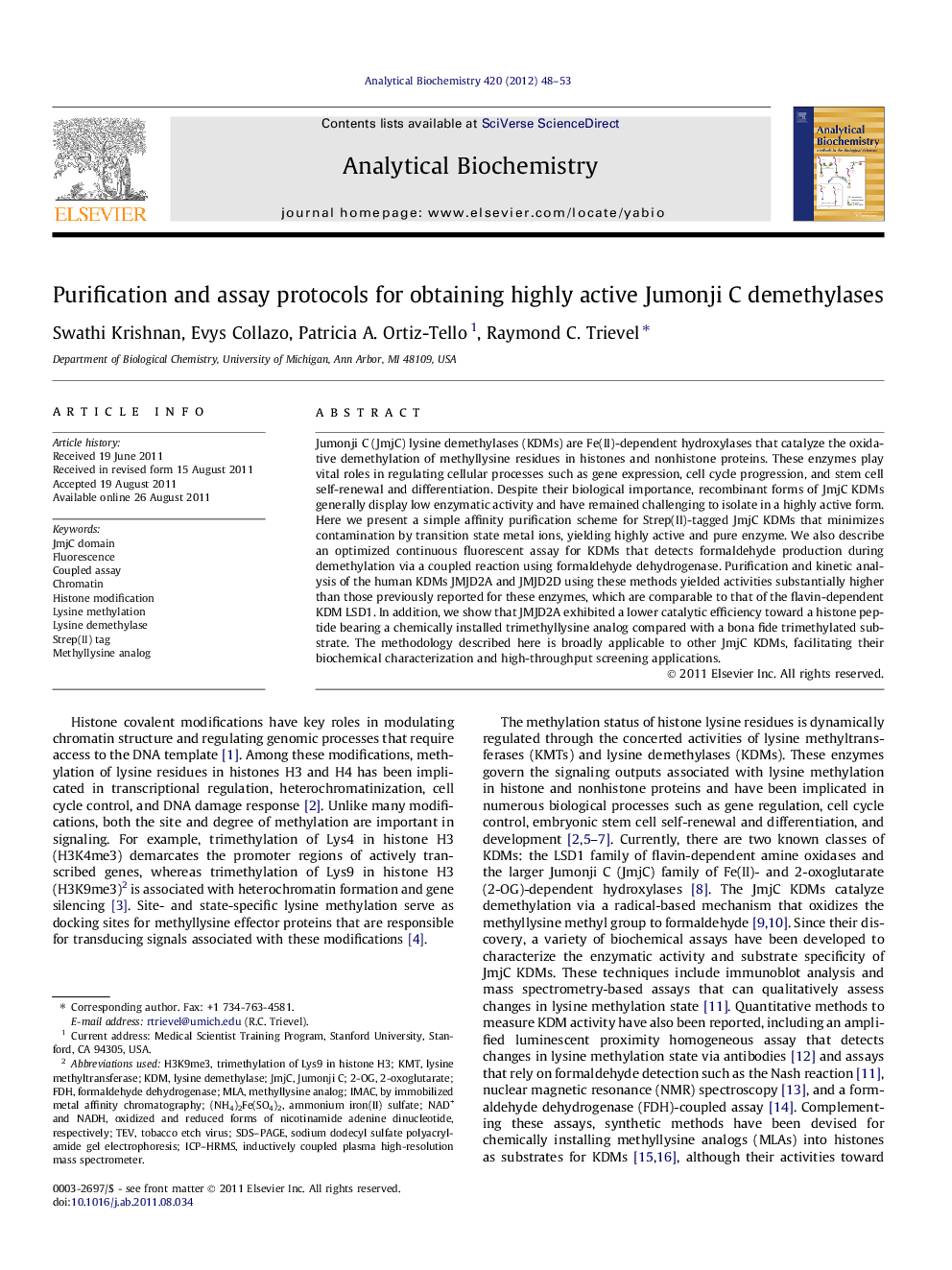| Article ID | Journal | Published Year | Pages | File Type |
|---|---|---|---|---|
| 1174187 | Analytical Biochemistry | 2012 | 6 Pages |
Jumonji C (JmjC) lysine demethylases (KDMs) are Fe(II)-dependent hydroxylases that catalyze the oxidative demethylation of methyllysine residues in histones and nonhistone proteins. These enzymes play vital roles in regulating cellular processes such as gene expression, cell cycle progression, and stem cell self-renewal and differentiation. Despite their biological importance, recombinant forms of JmjC KDMs generally display low enzymatic activity and have remained challenging to isolate in a highly active form. Here we present a simple affinity purification scheme for Strep(II)-tagged JmjC KDMs that minimizes contamination by transition state metal ions, yielding highly active and pure enzyme. We also describe an optimized continuous fluorescent assay for KDMs that detects formaldehyde production during demethylation via a coupled reaction using formaldehyde dehydrogenase. Purification and kinetic analysis of the human KDMs JMJD2A and JMJD2D using these methods yielded activities substantially higher than those previously reported for these enzymes, which are comparable to that of the flavin-dependent KDM LSD1. In addition, we show that JMJD2A exhibited a lower catalytic efficiency toward a histone peptide bearing a chemically installed trimethyllysine analog compared with a bona fide trimethylated substrate. The methodology described here is broadly applicable to other JmjC KDMs, facilitating their biochemical characterization and high-throughput screening applications.
